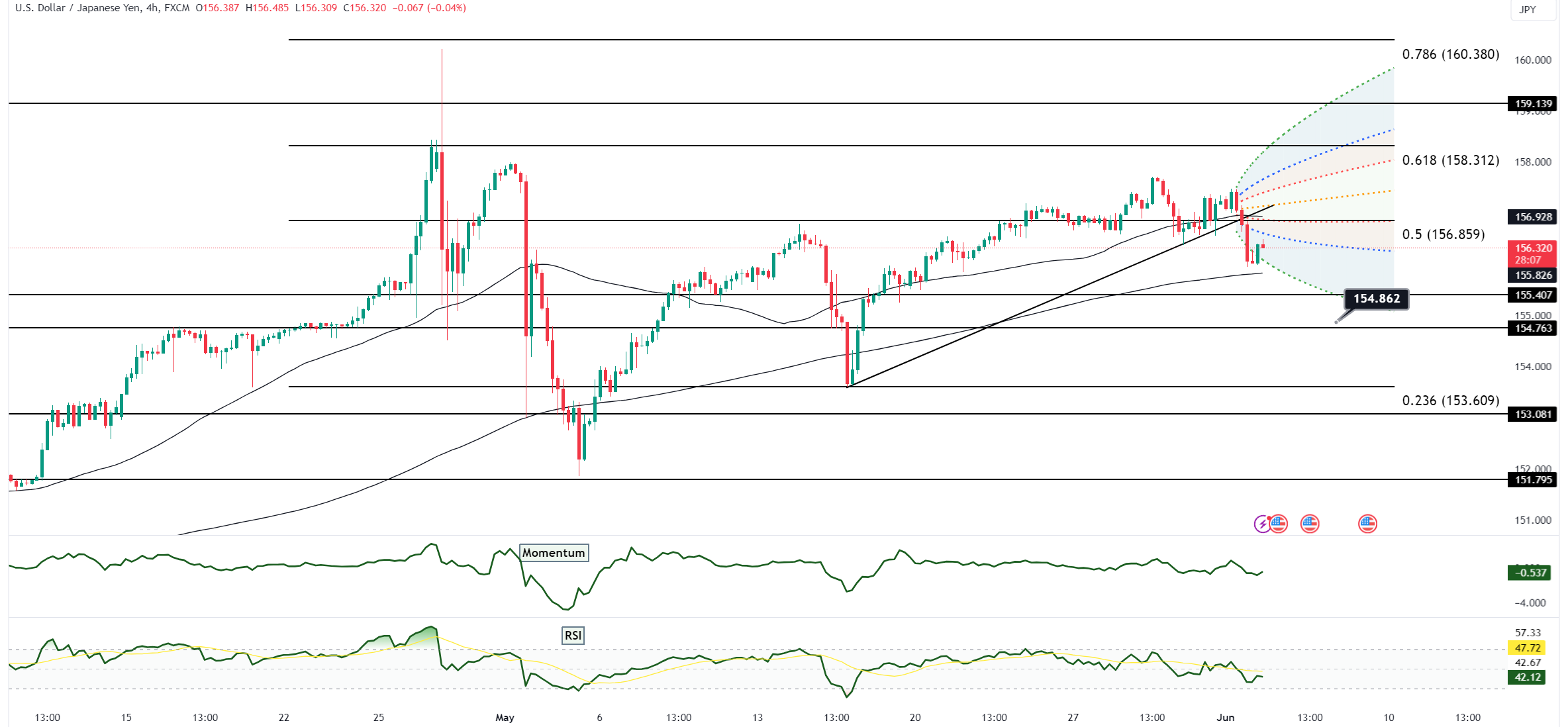USD/JPY Plunges Amid Yen-Funded Trade Unwinding; Key U.S. Economic Data Looms

The USD/JPY has experienced a significant decline this week, primarily driven by a broader unwinding of yen-funded risk-on trades and a substantial drop in the U.S. JOLTS job openings, which fell well below forecasted levels. This decline has broken key support levels, raising concerns that U.S. Treasury yields and prices might not sustain May's key supports if upcoming U.S. economic data, particularly the ISM services report and Friday's jobs report, also underperform. The 2-year Treasury-JGB yield spreads have decreased by 37 basis points from May's 2024 peak, suggesting that the remainder of this week's U.S. economic data will be crucial. Stability or strength in these reports is necessary to prevent a broader slide in USD/JPY, which could potentially drop to May's lows around the 2023 peak near 152. The USD/JPY pair did bounce off the 154.55 lows, close to the 55-day moving average at 154.44, which had previously helped reverse May's post-intervention plunge. However, today's plunge into the daily cloud and the first drop in the kijun since January puts the cloud base at 153.36 at risk. Two- and 10-year Treasury yields, which have declined by 3.9 basis points and 5.1 basis points respectively, have so far held above May's pivotal lows of 4.704% and 4.31%. This provides some support as Treasury yields and USD/JPY prices were oversold before the weak JOLTS report.
Futures markets now highly favor Federal Reserve rate cuts in September and December, a shift from a week ago when there were doubts about more than one rate cut. The Bank of Japan (BoJ) is priced to hike rates at least twice by year-end and appears to be moving towards using Japanese Government Bond (JGB) purchases solely to control the pace of rising longer-term yields, rather than to stop it entirely. This shift indicates a diminished risk of intervention, which dampens upside prospects for USD/JPY. The recent drop in USD/JPY and JOLTS adds to the derisking momentum ahead of essential U.S. data releases. The sharp drop in USD/JPY prices below the 30-day moving average and cloud top, nearing the 55-day moving average at 154.43, underscores the heightened risk environment. The 55-day moving average has previously attracted buyers near May's post-intervention trough at 151.86. The kijun has dropped from 156.05 to 154.92, marking its first bearish decline since January. If the upcoming ISM non-manufacturing report and the Non-Farm Payroll (NFP) report fail to bolster U.S. yields, the cloud base at 153.36 is within reach. A significant miss in U.S. data could see USD/JPY potentially revisiting May's lows around the 2023/22 peak near 152. Both the Ministry of Finance, the BoJ, and the Japanese government are signaling a strong desire to prevent yen losses from adversely impacting the economy.
Open an account today to unlock the benefits of trading with CMS Financial

